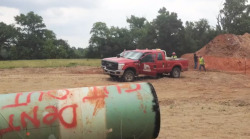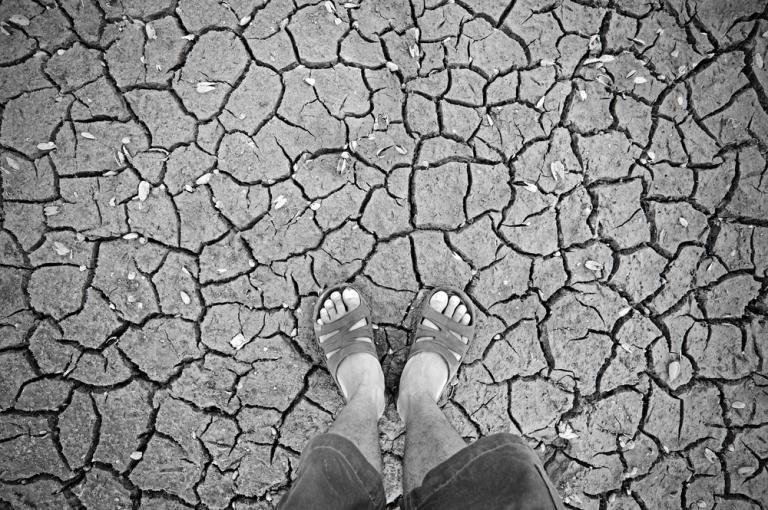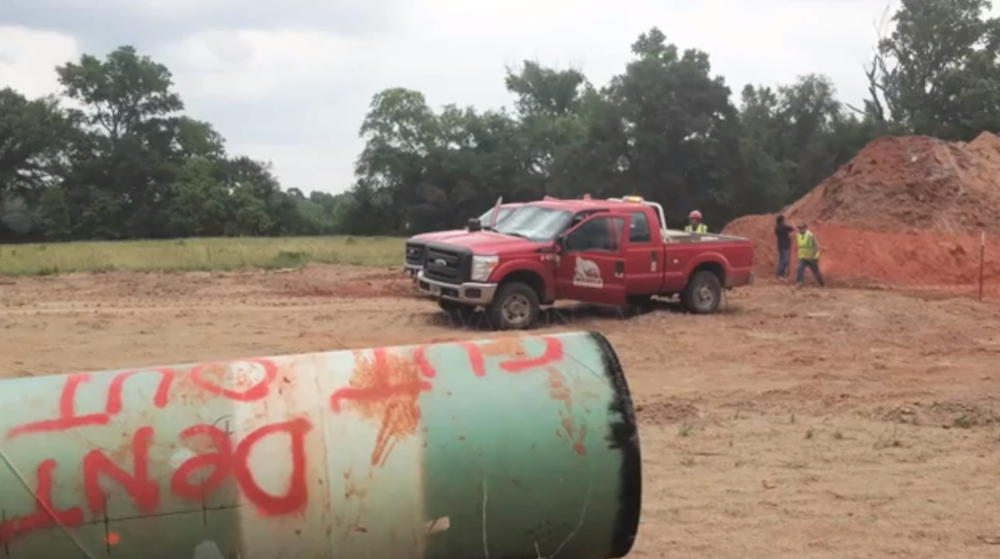
David Whitley via Public Citizen TexasA section of faulty pipeline.
Property owners who watched with disgust and fear as TransCanada contractors ripped up their land to lay the southern leg of the Keystone XL pipeline are being treated to a repeat performance.
The pipeline isn’t even in service yet, but already TransCanada is digging up stretches of faulty piping and replacing them, raising fresh safety fears. The pipeline is intended to link up with the Keystone XL northern leg — which is still waiting for approval from the Obama administration — and then carry tar-sands oil down to refineries in Texas.
From a Public Citizen press release:
Dozens of anomalies, including dents and welds, reportedly have been identified along a 60-mile stretch of the southern segment of the Keystone XL pipeline, north of the Sabine River in Texas.
In the past two weeks, landowners have observed TransCanada and its vendor, Michels, digging up the buried southern segment of the Keystone XL pipeline on their properties and those of neighbors in the vicinity of Winnsboro, Texas. Some of the new pipeline has been in the ground on some owners’ land for almost six months. It is believed that problems identified on this section of the Keystone XL route must have triggered the current digging, raising questions from landowners about the safety of the pipeline and the risk to personal property and water supplies.
Landowners are concerned that this digging is indicative of faulty pipeline along the route that could potentially leak and threaten water supplies, and have requested TransCanada and the U.S. Department of Transportation’s Pipeline and Hazardous Materials Safety Administration to provide more information about the work.
Photos taken by residents show wooden stakes in the ground labeled “weld” or “anomaly.”
Mohammad Najafi, a civil engineering professor at the University of Texas at Arlington and editor-in-chief of the Journal of Pipeline Systems Engineering and Practice, said an anomaly “relates to something unusual” on the pipeline that could potentially cause a problem.
The presence of 40 anomalies over a few dozen miles is “very unusual” and “shows that something is wrong,” he said. “That’s not a good sign … it doesn’t necessarily mean it’s dangerous, but it means [TransCanada] may have missed something.”
TransCanada spokesman Shawn Howard said the Keystone XL is being fixed “out of an abundance of caution” to ensure that it operates at a “much higher degree of design and safety than any other pipeline.”
Public Citizen Texas produced the following video about the unexpected and unsettling bout of pipeline repair:




